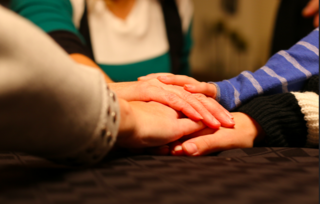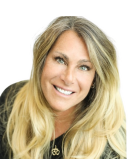Addiction
Why Do I Have to Recover if I'm Not the Substance User?
Why addiction is a family disease.
Posted June 28, 2022 Reviewed by Ekua Hagan
Key points
- Just as treatment is crucial for substance users, recovery is equally important for their loved ones.
- Recovery programs like Al-Anon can help shed light on the role a loved one may play in a relationship with a substance user.
- One way to define recovery is personal development and growth, which is a lifelong process for everyone.

As the family member of someone with a substance use disorder, have you heard you need to be in recovery? If so, did you find yourself resentful of those words? If you've found yourself wondering why you would need a recovery program when you're not a substance user, you might find some answers here.
As a family addiction coach, I am often asked by family members why they need to get into recovery. It's my job to help them understand that recovery is just as crucial to their well-being as treatment is to their loved ones.
I remember my first introduction to Al-Anon, the 12-step recovery program for the loved ones and family members of alcoholics. I was in my mid-twenties and knew nothing about addiction, recovery, or Al-Anon. But, when I dropped off my boyfriend at the time for treatment, I heard that word for the first time. As I met my boyfriend's counselor, I rattled off a verbal laundry list of everything she needed to fix in him. After all, I just knew if she fixed him, I would be happy. Sound familiar?
I'm sure she was trying not to roll her eyes at me. With utter tolerance for my ignorance, she handed me a pamphlet advertising Al-Anon and, without any emotion whatsoever, she said, "Go to Al-Anon." When I assured her that I didn't need fixing, or have a need to go anywhere, that all my problems were because of his alcohol and drug use, she patiently held out the brochure and emphatically repeated her words, "Go to Al-Anon."
She just didn't get it!
However, I was a dutiful and supportive girlfriend and confident that if I did this for him, he would be pleased with me, so I went to Al-Anon. Looking back on it now, I was resentful of having to go to Al-Anon for him, but at the time, I was such a people-pleaser I hadn't noticed. If you've encountered the feeling of resentment when having to get into a recovery program, I want to assure you that you're not alone.
It didn't take long to figure out that I was there for reasons other than supporting my boyfriend or trying to figure out how to get him to stop using. I was figuring out what the counselor had meant by telling me to go to Al-Anon; I would learn something about myself.
The first thing I remember grasping out of those early meetings was the concept of the "three Cs"; I didn't cause it, I can't control it, and I can't cure it. Wow, were those words eye-opening.
But I didn't know any of that until I walked into those rooms of Al-Anon. I had thought I had caused it, and if I could just be a better girlfriend and not make him so angry, he wouldn't use drugs and alcohol. I also thought I could control how much he used by flushing cocaine down the toilet or emptying liquor bottles down the drain when I determined he had had enough. But, of course, there was always more. And, as much as I tried to reason with him, be supportive of him, and try harder to fix him, it was beyond my ability to cure him.
I spent over 20 years in those rooms, learning that my dad had been an addict, that every man I dated had been an addict, and until I sorted out my role in any of it, I would always seek out an addict. It was in those relationships that I was most comfortable.
I quickly learned I had been sent to Al-Anon for me, not anyone else. Now, with this knowledge, I can help the family members I work with see their role in their relationship with a loved one suffering from substance use disorder. Their behaviors keep them stuck and their loved ones comfortable in the addict role. Recovery means stepping out and living outside of that role.
Recovery is essentially a term that, to me, means personal development and growth. After all, we're all recovering from something life has thrown at us; think illness, injury, bullying, job loss, divorce, etc. Any of it can be traumatic and life-altering. Every family member dealing with a substance use disorder is likely in a maladaptive role and adapted to dysfunction. Getting into recovery means taking care of yourself and learning to change behaviors to be healthier and happier in your own life and relationships.
Though I found many answers in Al-Anon, and it was my start in personal development, 12-step programs are not the only way to get into recovery. There is no one-size-fits-all model for that path. There are shelves of books on the subject; there are workshops and retreats, and you can find therapists and coaches in the addiction and recovery space. The point is to find your path to getting there and get started.
Albert Einstein said, "Once you stop learning, you start dying." I take the liberty to believe that means learning about oneself as well. So, don't be resentful about being in recovery, but rather grateful for the opportunity to grow and evolve as a human being and family member. And, don't ever stop because it will only improve your life and relationships for all of your days.
To find a therapist, please visit the Psychology Today Therapy Directory.




